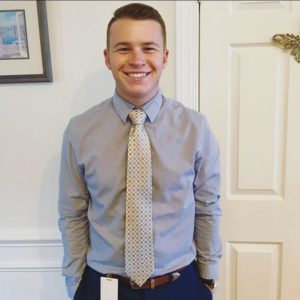Welcome to the final installment of the CSE Institute’s Student Blog Series! Thank you to our writers, Ryan Kelly, Molly Krebs, Paige Pihl Buckley, and Anna Boyd for their hard work and dedication to combating commercial sexual exploitation. Make sure to check back in next semester for our next student series.
One of the world’s most egregious and universally-condemned crimes occurs daily, often, and quietly. According to a 2012 report by the International Labour Organization, for every reported case of human trafficking, approximately 27 cases are unreported. The most common form of human trafficking is, by far, sex trafficking, which comprises approximately 79% of all human trafficking cases, primarily involving a female victim, according to a 2014 report from the United Nations Office on Drugs and Crime. These reports are telling: the incredibly widespread experiences of women, men, and children who suffer under the conditions of forced prostitution every day often go unreported to law enforcement agencies. This unacceptable reality begs the question – why?
The answer is multi-faceted, but “among the most important” reasons for these low reporting rates are survivors’ “frequent reluctance to report crimes or testify for fear of reprisals” and “disincentives, both structural and legal, for law enforcement officers to act against traffickers.” This fear of retaliation is both understandable and warranted: traffickers “use threats, intimidation, and violence” against survivors as tactics to prevent trafficking survivors from reporting their traffickers to authorities.
Lack of public and government responsibility must not be ignored. As reported by the International Organization of Migration (“IOM”), structural and legal disincentives discourage law enforcement agencies and officers from acting in a manner that encourage survivors of trafficking to step forward. Evidence of these disincentives is apparent right here in Pennsylvania. According to the CSE Institute’s , 78.21% of those arrested between 2015 and 2016 on charges related to commercial sex were prostituted persons, those victimized by commercial sexual exploitation. Just 21.79% of arrests relating to the sale of commercial sex were of sex buyers, those exploiting victims of commercial sexual exploitation, many of whom are victims of trafficking. The report also found that of the 42 Pennsylvania counties that reported arrests, only four “targeted the demand for commercial sexual exploitation, by arresting buyers more frequently than sellers.”
These numbers have consequences. For example, North Virginia Human Trafficking Task Force Detective Bill Woolf noted, “In many cases, those who have been exploited believe they are offenders. They fear law enforcement, because they’re technically committing a crime and that is prostitution.” Aware that survivors often view themselves as criminals, traffickers use the improper policing of commercial sexual exploitation to their advantage – by threatening to call the police on the persons they exploit and telling them the police will arrest for them criminal acts (i.e., prostitution) in order to keep survivors silent and compliant.
The IOM presents factors that may contribute to the lack of police focus on targeting sex buyers and perpetrators of sexual exploitation. These factors include the lack of legislation for “prosecution and victim protection,” as well as lack of proper staffing and instruction for police units.
It is easy for individuals to accept the worthy cause of ending commercial sexual exploitation and to support the right ideas. It is easy for individuals to agree that action must be taken to prevent commercial sexual exploitation and save those lives lost to and controlled by it. It is easy for individuals to agree that governments and agencies must significantly change how the crime is policed.
It is easy to agree that action must be taken; the challenge becomes to take that action.
It is important to learn not just which direction the law should move, but why it should move that way, learning Why Focusing on Demand for Commercial Sex is an Effective Means to Deter Commercial Sexual Exploitation – not merely focusing on the supply – those sold for commercial sex – the very strategy that discourages reporting the crime. Take action by using our voices to share what we read and learn from the research and experiences of others with our peers and representatives in government, who have the ability to help empower those affected by commercial sexual exploitation.
Take action by demanding change in government and contribute to the national discussion. Take action by educating ourselves and others on the policies that best address and serve all persons, including children, affected by commercial sexual exploitation. Take action by reading and learning that many researchers underreport instances of human trafficking by failing to count trafficking cases where transportation is not involved and by failing to account for persons who coerced or deceived into agreeing to be trafficked. What action will you take?
All views expressed herein are personal to the author and do not necessarily reflect the views of the Villanova University Charles Widger School of Law or of Villanova University.
Ryan Kelly is currently a first-year law student at the Villanova University Charles Widger School of Law. Ryan is from Springfield, Pennsylvania and received a Bachelor of Arts in Public Affairs from The Ohio State University. After graduation, Ryan hopes to become either a corporate attorney specializing in either litigation or transactional law.



